Mazhar Mohammed Saleh: Iraq's economy, financial flows and trade relations will not be affected by events in Syria
The Iraqi Prime Minister's Advisor for Economic Affairs, Mazhar Mohammed Salih, confirmed the strength of the Iraqi economy, its financial flows, and its trade relations, noting that this economy has not been affected by the tensions taking place in the Syrian arena.
The video for this blogpost is below here:
Mazhar Muhammad Salih said in a press statement, “The Syrian economy is an economy sanctioned by countries, such as the United States and some other European countries, and therefore all banking relations (for Iraq) with Syria are basically unavailable.”
He explained that “trade with Syria is mostly border trade and consists of simple, natural civilian goods such as agricultural crops or something like that.”
Regarding the impact of the events in Syria on the exchange rate of the dollar in Iraq, Mazhar Muhammad Salih stated that “the current events are in Syria, not Iraq,” adding that “the problems in Syria may affect some of the simple border trade known, or which is civil or related to the tourism sector, and some simple problems and disturbances may occur, but they are not major disturbances.”
The Iraqi Prime Minister's advisor for economic affairs pointed out that "the Iraqi economy, by nature, has high cash flows from its oil trade and global trade with large trade sources, while the minor fluctuations that are taking place are nothing but colorful noise."
He explained that “the parallel markets usually benefit from any political event in neighboring countries, for example, to raise the price, and for speculators to benefit, so this is a temporary speculation that leads to very simple price disturbances, and has no relation to the Iraqi economy, and is called information markets, so what is happening in Syria at the present time will not affect the Iraqi economy, and our economy is completely isolated from the Syrian issue.”
Mazhar Mohammed Saleh stressed that “the country is immune and there is no fear for our trade because it is governed by the central policies of the state,” noting that “Iraq obtains its budget from major oil revenues, which strengthen the banks’ finances and finance Iraq’s foreign trade, not the domestic market,” adding that “the parallel market is a completely superficial market and does not indicate anything in reality about the Iraqi economy at the present time.”
The Iraqi Prime Minister’s advisor for economic affairs stated that “the parallel market benefits from the neighboring unrest and does not pose any threat to the Iraqi economy and does not represent anything, and we are immune to what is happening in Syria,” explaining that “the problems in Syria are not new to it and have existed since 2011, so there is no fear for the Iraqi economy, which is immune and neutral from the problems of others.”
Mazhar Muhammad Salih stressed that “our policies are disciplined, so what is happening in Syria does not affect the overall economic situation, and an increase in the exchange rate of the currency by one or two dollars could return to its previous state quickly, perhaps through a single statement.”
He believed that “Iraq’s economic situation is secure, its oil policies are calm, its trade relations with the outside world are going well, and its cash flows from cash revenues are good and beyond reproach, and thus the economic situation is stable.”
Al-Sudani: Initial agreement to calculate the cost of extracting the region’s oil at a price of $16
Iraqi Prime Minister Mohammed Shia al-Sudani revealed a preliminary agreement to calculate the cost of extracting oil from the Kurdistan Region’s fields at a price of $16 per barrel.
Al-Sudani said during his hosting in the House of Representatives that the price set for oil extraction will be applied until the real cost is approved by the international consultant, and then the settlement will be made retroactively.
Iraq | Briefing by SRSG Dr. Al Hassan at the 9803rd meeting of the UN Security Council | 6 Dec 2024
https://www.youtube.com/watch?
He gave a good report
Rafidain Bank Restructuring Program.. Justifications and Requirements
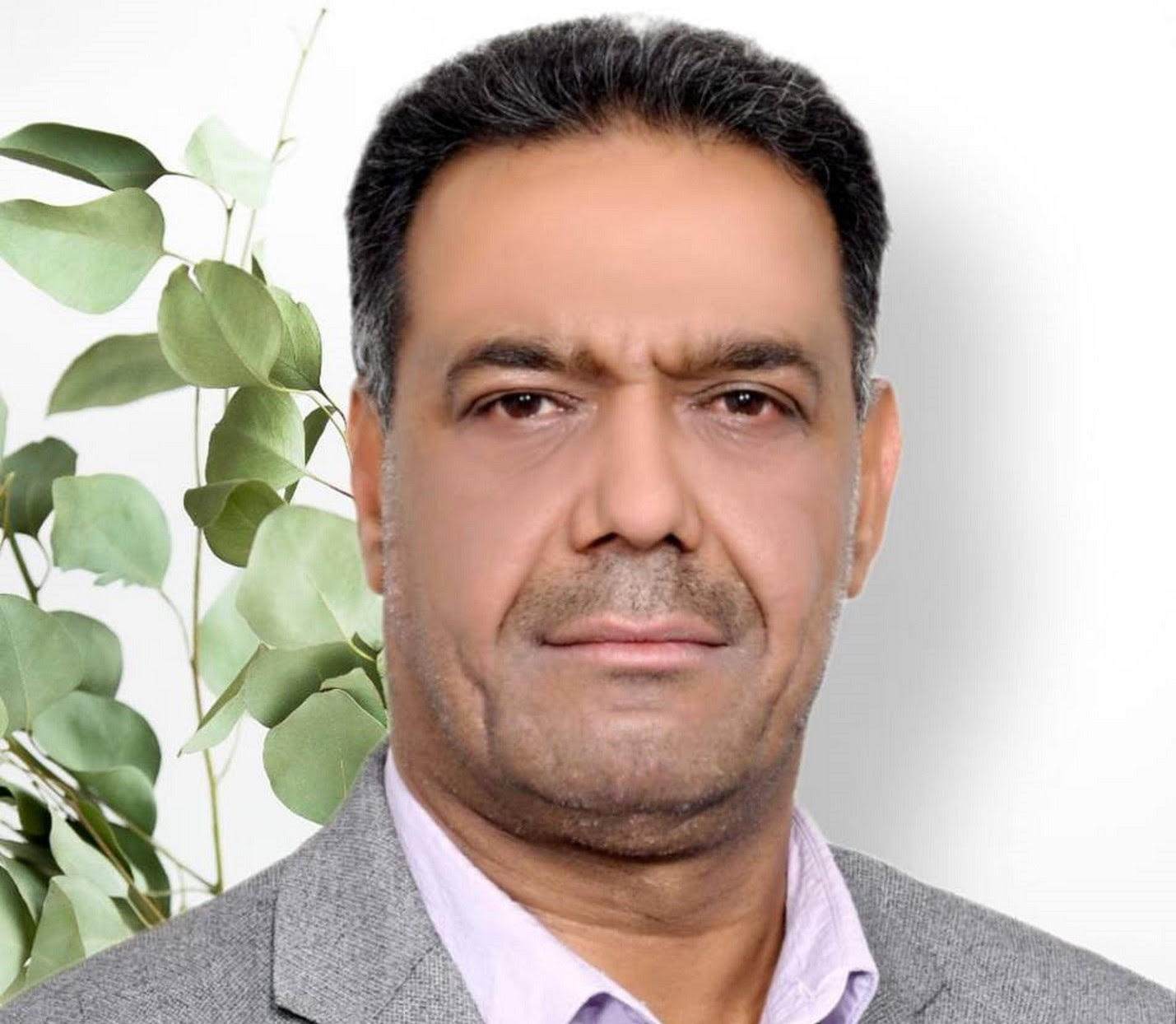
After the Prime Minister stressed during his meeting with representatives of Ernst & Young the importance of developing the work of the government banking sector to enhance the confidence of citizens and local and foreign investors in the government banking sector in particular and the economy in general, the restructuring of Rafidain Bank is the first step towards economic reforms in the banking sector towards restructuring Iraqi government banks such as Rashid, Agricultural and Industrial, in an effort to make them play a financial role that stimulates growth and stability.
Rafidain Bank has witnessed accumulated internal problems inherited from the previous regime and subsequent governments after the change, manifested around banking, credit and administrative policies that have undermined the bank’s credit capacity and limited its banking stability and operational and financial efficiency, as Rafidain Bank still suffers from many fundamental problems at the core of banking work, namely:
The balance sheet of Rafidain Bank suffers from debts owed by it as a result of issuing letters of guarantee and confirming credits in favor of government departments and companies, which, along with the accumulated interest, have exceeded their natural limits.
The bank's credit rating has declined.
Limited ability to keep up with developments in the banking industry.
The decline in the bank’s ability to meet its obligations according to profitability indicators, capital adequacy indicators, the ratio of equity to total assets and the ratio of equity to total deposits, which indicates the weakness of the bank’s activity in meeting its credit obligations.
Rigidity of banking legislation and failure to build policies for developing banking services through advanced banking technologies.
Hence, it is expected that the restructuring will improve its performance in a way that will rehabilitate it to be able to increase its efficiency in managing its balance sheet and improve its ability to achieve profitability indicators, capital adequacy and resource employment indicators. By redesigning the bank's organizational structure, creating new departments and merging existing ones with new ones, the bank's tools and objectives can be developed with the aim of improving the performance of the bank's structure in the infrastructure of organization and supervision, solvency and liquidity rules, its lending policy and formulating its relations with other banks on the one hand and government units and others on the other hand.
Therefore, it is possible, on a theoretical level, after the restructuring process, that the bank’s performance will improve and its productivity will increase in the short and long term, and its financial and operational efficiency will be raised, as the cost of banking operations will be reduced and the process of participation in decision-making will move towards what is consistent with banking decentralization. It is expected that the new structure will aim to avoid credit bankruptcy by limiting the accumulation of ineffective balances and avoiding a credit crisis.
But in reality, we see that the restructuring process faces several challenges, the most important of which are the difficulty of attracting and attracting the required sufficient capital, low savings rates, weak capital market, high cost of modern technology and developing related systems, and high cost of training employees in the banking sector.
Therefore, the restructuring program should aim to secure two strategic requirements:
The first requirement: It revolves around the goal of restructuring the operating side with the aim of achieving its financial stability. The goal of restructuring the financial side in a way that restores the bank’s ability to comply with the minimum capital adequacy and other hedging requirements.
The second requirement: It includes two objectives. The first is concerned with restructuring the bank according to an accurate and clear plan for the short, medium and long term in the institutional and operational aspects, in a way that ensures the bank’s harmony with market conditions and customer service and in accordance with the hedging requirements contained in the Banking Law and the Central Bank of Iraq Law, and the requirements of compliance and competition. As for the second, it is concerned with amending the laws, regulations and instructions that regulate the work of Iraqi banks in a way that qualifies them to work in light of modern banking standards and indicators to keep pace with market requirements and enhance the prospects and requirements of growth and stability in a way that serves the banking reform process.
Expert identifies the damages of not submitting the final budget account
Nouri explained in his statement to {Euphrates News} Agency that "the final account of the state, as stated in Article (1) Third of the Financial Administration Law No. (6) of 2019, is the federal financial statements that include the financial position statement and the result measurement account, and it reflects the implementation of the federal general budget."
He pointed out that "Article (62) first of the Iraqi Constitution of 2005 obliges the Council of Ministers to submit the draft general budget law and the final account to the House of Representatives, which has not been implemented by the Ministry of Finance for many years," explaining that "the Federal Court has supported a lawsuit filed by one of the parties against the ministry in this regard."
The economic expert explained that "not submitting the final account deprives the House of Representatives of comparing the actual achievement of implementing the budget for the previous year with the draft budget law for the following year, which leads to a lack of transparency in expenditures and hinders the ability to identify financial deviations and excesses."
He stressed that "the final account for 2023 can be submitted because it has been implemented, while the account for 2024 cannot be submitted because it has not yet ended, and the account for 2025 cannot be submitted because it has not yet begun."
The region's salary crisis is worsening again.. Demonstrations return in Sulaymaniyah
Hundreds of teachers and employees demonstrated today, Saturday (December 7, 2024), in front of the Sulaymaniyah Court, protesting the salary crisis, which has been delayed for the past two months.
Baghdad Today correspondent said, "Hundreds of employees, teachers and instructors demonstrated in front of the Sulaymaniyah court due to delayed salaries, while they demanded an end to this crisis and reaching a final agreement that would lead to the delivery of their salaries without delay."
Last Thursday, the Committee for the Defense of Teachers and Employees’ Rights in Sulaymaniyah launched a public call to participate in popular demonstrations to protest the delay in disbursing their salaries for the past two months, amid growing anger over the failure to meet their legitimate rights despite their performance of their job duties.
In a press conference, committee member Zana Gharib called on all teachers and employees in Sulaymaniyah to actively participate in the demonstrations scheduled for Saturday (today).
"We did not receive our salaries for the months of October and November, even though we performed our duties to the fullest. This is a clear injustice and a violation of the principle of rights and duties," Gharib said.
Over the past few days, Sulaymaniyah has witnessed an escalation in strikes within schools and administrative institutions, with protesting employees and teachers confirming that they will not return to work before salaries are paid.
Days ago, Baghdad announced the transfer of 761 billion dinars to the account of the Ministry of Finance of the region as part of the October salary dues. However, the salaries have not been delivered yet due to the deduction of 235 billion dinars from the total amount, which led to the inability of the Ministry of Finance in the region to pay the dues.
Syrian opposition fighters announce start of attack on Kurdish forces in Manbij in the north
Syrian opposition fighters said they have launched an attack on Kurdish-led forces in the northern Syrian city of Manbij.
This came according to a statement published by an entity describing itself as the “Ministry of Defense in the Syrian Interim Government” on Sunday, but it was dated Saturday, December 7.
The statement published on X said, “To all soldiers from the regime forces and the SDF militia in the occupied city of Manbij who wish to lay down their weapons and spare themselves from the dark fate that awaits them on the field in front of the heroes of the Syrian National Army, contact us,” and provided numbers to contact them.
The abbreviation (SDF) refers to the Syrian Democratic Forces, led by Kurdish fighters.
At dawn on Sunday, Bashar al-Assad's regime fell after losing control of the capital Damascus and it falling into the hands of the armed Syrian opposition factions.
On November 27, clashes erupted between Syrian regime forces and opposition factions in the western countryside of Aleppo Governorate.
The opposition forces were then able to impose their control over Aleppo, Idlib, Hama, Daraa, then Sweida, Homs, and finally Damascus.
Most notably Trump and Macron.. Nechirvan Barzani meets world leaders in Paris (photos)
The President of the Kurdistan Region, Nechirvan Barzani, met with leaders and heads of state on the sidelines of participating in the reopening ceremony of "Notre Dame Cathedral" in the French capital, Paris.
According to the photos published by the presidency of the region, the most prominent leaders and chiefs that President Nechirvan Barzani met with are: French President Emmanuel Macron, US President-elect Donald Trump, and American billionaire and businessman Elon Musk.
An official reception ceremony was held in Paris for President Nechirvan Barzani, via an official procession carrying the flag and name of Kurdistan.
In response to an official invitation from French President Emmanuel Macron, Nechirvan Barzani, President of the Kurdistan Region, participated yesterday evening, Saturday, along with a number of world leaders and presidents, in the reopening ceremony of the historic Notre Dame Cathedral in Paris.
Al-Nusairi calls on the media to be patriotic, transparent and supportive of the national economy
Economic and banking advisor Samir Al-Nusairi called for economic media to be national, specialized, accurate, honest and transparent in diagnosing economic problems and imbalances, and to be a real and supportive contributor in proposing solutions and treatments to the supervisory and regulatory government bodies, and not to be a media that is satisfied with directing criticism and accusations without relying on accurate and transparent sources and information.
Al-Nusairi pointed out that the economic analysis of those called analysts or experts should be realistic and committed to reaching accurate information from reliable sources so that the government and its economic institutions can benefit from it for the purposes of diagnosis, treatment and accountability.
Al-Nusairi warned against some non-economic media (or non-specialized media) that have recently promoted and analyzed incorrect news that is tainted with lack of credibility and fallacies in transmitting and analyzing the news according to specific visions, intentionally or unintentionally, that harm the course of economic, financial and banking reform, disrupt the movement of monetary and commodity trading in the local market, and hinder the efforts of the government and the Central Bank in achieving the goals set to achieve the desired reform steps, stressing that the non-committed media contributes to adding another problem that affects the nerve of the Iraqi economy in addition to the challenges that the country and the region are currently suffering from, which is creating a state of economic instability and fluctuations in the exchange rate of the US dollar against the Iraqi dinar and the rise in the prices of basic and necessary goods and materials such as food and medicine.
He pointed out that it is necessary here for media workers in all its fields and analysts who roam satellite channels and lack experience and intent to realize that specialized economic media has an important and fundamental role in creating economic stability and goes beyond that to contributing to economic reform and enabling and assisting the concerned state agencies and institutions to control economic problems and spread economic culture and avoid failure cases because economic media must be national economic media in word and meaning. Al-Nusairi explained that media and economy are in a multi-faceted and permanently related partnership, and they are on the same front to face the challenges they face together, and if we assume that the economy can create successful media, then it is certain that the media can also create a successful economy, and this is what results in the success of the media institution if it has specialized economic leaders who are aware of the role of national media. Iraq's experience in this field is considered modern, as the economy needs support and assistance in promotion, analysis, planning and support in order to deliver a distinguished media message to the audience, whether through the press, television, radio, or modern media and communication channels.
Al-Nusairi concluded by saying: “Therefore, the economic media that can deliver a purposeful message and serve the economy and economic institutions is the one that attracts an important segment of society. It will remain and continue and achieve the strategic goals of supporting the national economy and developing the work of productive, financial and banking institutions. The economic media must undertake positive participation in the process of development and economic reform by presenting an image of the nature of the future trends of the economy and identifying economic and development activities and events and available energies and encouraging and stimulating the economy and investm0ent.”
Despite the rise in domestic borrowing, a government advisor: the financial situation is stable
The financial advisor to the Prime Minister, Mazhar Mohammed Salih, confirmed that Iraq's financial situation is completely stable, noting that financial revenue flows, especially non-oil, have witnessed a noticeable improvement thanks to strengthening control over customs and taxes.
Saleh explained that Iraq has what is known as "fiscal space," which allows the government to continue spending even with some domestic borrowing, stressing that the burden on the budget is still within normal limits compared to the gross domestic product.
He pointed out that "Iraq, historically, spends the equivalent of 80% of the planned annual budget, while the remaining percentage is not achieved for various reasons."
Regarding inflation and economic growth, Saleh confirmed that “the inflation rate for the current year did not exceed 4%, while the non-oil GDP achieved a growth of 6%, which is an unprecedented rate in the history of Iraq.”
He added that "the financial situation for the current year shows good performance despite some internal borrowing amounting to about 10 trillion dinars, which is something that can be controlled under the current circumstances."
Saleh expected that "the financial situation in 2025 will be better, despite the continuing challenges associated with the general budget being 90% dependent on oil revenues."
He concluded by saying, "These indicators reflect Iraq's ability to achieve economic stability, despite internal challenges and global fluctuations in oil prices."
another version
Despite the increase in domestic borrowing.. Government advisor: The financial situation is stable
The financial advisor to the Prime Minister, Mazhar Muhammad Salih, confirmed that Iraq's financial situation is completely stable, noting that the flow of financial revenues, especially non-oil, has witnessed a noticeable improvement thanks to the strengthening of control over customs and taxes.
Saleh explained that Iraq enjoys what is known as "fiscal space", which allows the government to continue spending even with some domestic borrowing, stressing that the burden on the budget is still within normal limits compared to the gross domestic product.
He pointed out that "Iraq, historically, spends the equivalent of 80% of the planned annual budget, while the remaining percentage is not achieved for various reasons."
Regarding inflation and economic growth, Salih confirmed that "the inflation rate for the current year did not exceed 4%, while the non-oil GDP achieved a growth of 6%, which is an unprecedented rate in Iraq's history."
He added that "the financial situation for the current year shows good performance despite some internal borrowing amounting to about 10 trillion dinars, which is something that can be controlled under the current circumstances."
Saleh expected that "the financial situation in 2025 will be better, despite the continued challenges associated with the general budget relying 90% on oil revenues."
He concluded by saying that "these indicators reflect Iraq's ability to achieve economic stability, despite internal challenges and global fluctuations in oil prices."
Former Minister Rules Out Trump Imposing Sanctions on Iraqi Oil Production and Marketing
Former Minister of Electricity, Luay Al-Khatib, ruled out US President-elect Trump imposing sanctions on Iraqi oil production and marketing.
Al-Khatib stated in a post on the “X” platform, which was followed by “Jarida”, that “Trump is a man of deals and will use his tools to redraw international relations in a manner consistent with his administration by controlling the movement of the dollar and imposing sanctions and central bank dealings on some institutions, individuals and even regimes that are unfriendly or difficult to deal with with the United States. He may be stubborn or strict on the issue of granting exceptions to Iraq’s import of Iranian gas and electricity exclusively to restrict the dollar’s access to Tehran, but he will not pressure Iraq, as the second oil producer in OPEC, to limit its production to support global markets in order to push for price instability and rises, especially in light of the sanctions in force on major producers such as Iran, Russia and others.”
He expected, “Perhaps the Trump administration will support American energy companies in the fields of oil, gas, electricity and renewable energy to invest in producing countries, including Iraq, to create an alternative and restore trade balance with an active presence, but with work controls that do not contradict financial dealings between Iraq and the United States and the two countries’ partners in the region.”
He stressed that "Iraq must move wisely and quickly to deal with the Trump administration and work on a proactive plan to win over the elected administration before it takes power so that the country can avoid costly moody scenarios that we faced during our ministerial period with great difficulty and succeeded at that time in containing them to pass exceptions on the gas and electricity files."
Halbousi concludes his visit to Congress and meets with the Foreign Relations Committee
Today, Friday, the head of the Progress Party, Mohammed al-Halbousi, concluded his visit to the US Congress by meeting with Republican Representative and member of the Foreign Relations Committee, Darrell Issa.
The media office of the head of the Progress Party said in a statement received by “Al-Jarida” that “the meeting discussed the strategic partnership between Iraq and the United States of America and ways to develop it in a way that reflects positively on the two friendly peoples and joint cooperation in the fields of energy and gas investment.”
The meeting also discussed the situation in Gaza and Lebanon, efforts to stop the war and put it into practical implementation, as well as the recent developments in Syria and the importance of containing this crisis and affirming the preservation of Syria's security and stability, according to the statement.
Prime Minister's Advisor: There are no strong banking, trade or investment relations with Syria
The financial advisor to the Prime Minister, Mazhar Mohammed Salih, explained today, Sunday, the repercussions of the Syrian events on the Iraqi economy, stressing that the absence of trade relations between Iraq and Syria reduces the economic effects.
Saleh told the Iraqi News Agency (INA): "We must differentiate between two types of impacts: the first is the greater impacts that might occur if there were major strategic and trade relations between Iraq and Syria, which is not the case due to the internal conditions in Syria and the political and economic problems it is going through, which led to Syria being isolated from the international community, so there are no strong banking, trade or investment relations between the two countries."
He added, "The second point is partial effects, represented by the repercussions of internal conflicts in neighboring countries, such as Syria, on the Iraqi economy, the most prominent of which is the influx of Syrian refugees into Iraq, which puts pressure on public services such as health, education and housing, and increases government spending."
He added: "The entry of refugees into the Iraqi labor market may create competition with local workers, which may lead to economic and social pressures."
Saleh explained that "the unrest in neighboring countries may lead to an increase in transportation and shipping costs, which raises the prices of imported goods. Insurance companies may also raise prices on goods transiting the region due to insurance risks associated with unstable conditions."
He pointed out that "the unrest may disrupt trade routes linking Iraq to neighboring countries such as Syria, Turkey and Iran, which may increase the cost of imports and lead to delays in the arrival of goods."
Again.. Parliament postpones the session on controversial laws
The House of Representatives decided to postpone its session scheduled for today, Sunday, due to the lack of legal preparations .
A brief statement from the council, received by "Mil", stated that "the House of Representatives postponed its session due to the lack of a quorum ."
The agenda included controversial paragraphs, most notably “voting on the draft Personal Status Law No. 188 of 1959, Articles (2, 10), and voting on the draft law amending the second general amnesty law, in addition to reporting and discussing the amendment to the budget law .”
MP reveals reasons for postponing the second reading of the budget law amendment
After the legislative holiday
Member of Parliament Mustafa Al-Karaawi announced today, Sunday (December 8, 2024), the postponement of the second reading of the amendment to the General Budget Law until after the legislative holiday.
Al-Karawi wrote on Facebook, which was followed by "Baghdad Today", that "the second reading of the amendment to the general budget law has been postponed until after the legislative holiday," adding: "To achieve social justice, satisfy the amendment, and complete the technical discussions away from political influences."
The House of Representatives' media department announced on Saturday, December 7, 2024, the agenda for the session on Sunday, which included a number of important draft laws .
According to the statement of the Media Department, the agenda of the session for Sunday included voting on the proposed Personal Status Law, voting on the draft law amending the second amendment to the General Amnesty Law, and reporting and discussing the second reading of the draft law amending the first amendment to the Federal General Budget Law of the Republic of Iraq for the fiscal years (2023, 2024, 2025) No. (13) of 2023.
Parliament then decided to postpone today's session, Sunday, due to the lack of a quorum.
Iraqi government issues statement on developments in Syria
On Sunday, the Iraqi government issued an official statement on the developments in Syria, stressing the need to respect the free will of all Syrians, and the importance of Syria’s security, territorial integrity, and preserving its independence.
Iraqi government spokesman Bassem Al-Awadi said in a statement, seen by Al-Eqtisad News, that "the Iraqi government is following the developments in the situation in Syria, and is continuing international contacts with brotherly and friendly countries, in order to push efforts towards stability, and preserve security, public order, lives and property for the brotherly Syrian people."
Al-Awadi added that "Iraq stresses the need to respect the free will of all Syrians, and stresses that the security of Syria, the unity of its territories, and the preservation of its independence are of utmost importance, not only for Iraq, but also for its connection to the security and stability of the region."
He continued, "The Iraqi government also supports all international and regional efforts seeking to open a dialogue that includes the Syrian arena with all its spectrums and trends, and in accordance with what the interests of the brotherly Syrian people require, leading to the adoption of a pluralistic constitution that preserves the human and civil rights of Syrians, supports the cultural and religious diversity enjoyed by the generous Syrian people, and the need to preserve this diversity, which represents a source of wealth for Syria, without prejudice or neglect."
Al-Awadi noted that "we reiterate the importance of not interfering in Syria's internal affairs, or supporting one party for the benefit of another, as interference will only push the situation in Syria towards more conflict and division, and the first to suffer will be the Syrian people who have paid a heavy price, and this is something that Iraq does not accept for a brotherly, independent and sovereign country, and is linked to our Iraqi people by ties of brotherhood, history, blood and religion."
Framework: Calls for demonstrations in Iraq are doomed to fail and no one will respond to them
Coordination Framework member Saad Al-Mutalibi confirmed today, Sunday, that any attempt to hold demonstrations in Iraq against the political system and create chaos like before will not find a popular response.
Al-Mutalibi said in an interview with Al-Maalouma Agency, “General affairs in Iraq are going well, as there is a remarkable development in the political process as well as in the administration of the state, and there is no reason for demonstrations or Protests at the present time," indicating that "calls for demonstrations will not be responded to by anyone without the presence of a regional and international instigator, and will not find any interaction from others."
He added, “Anyone who tries to exploit the current events in Syria to make a change in Iraq will have to wait a long time,” noting that “the situation in Syria is very complicated and it is an experiment that is still in its early stages and its success is very difficult, considering that the SDF will resist the Turkish tide while Turkey is trying to annex areas in its favor.”
It is noteworthy that Iraq is living in a state of anticipation regarding the accelerating situation in Syria after the terrorist groups took control of it, amid fears of direct repercussions on the Iraqi interior.
The Center for Banking Studies announces its training plan for the year 2025
The Director General of the Center for Banking Studies, Dr. Mustafa Munir, said that the center will provide specialized accredited courses and tests in the fields of the financial and banking sector, providing workers in this vital sector with accredited international certificates and practices, in addition to providing solid scientific consultations and studies in the financial and banking fields of the Iraqi banking system.
The attendees expressed their interventions regarding the plan and enhancing its details, in light of the observations and suggestions made by each of them at the level of the accredited specialized certificates axis and the workshops and training courses axis, which reflect the actual training needs of banking institutions and non-banking financial institutions, to raise the level of efficiency of the performance of workers in the banking system, towards achieving the goals of sustainable development in implementation of the government program with the required qualitative achievement.
The deliberative meeting concluded with expressing observations and suggestions that would positively reflect on the effectiveness of the training plan to be launched in 2025, and preparing it in its final form, taking into account the flexibility of the plan and its ability to accommodate developments and keep pace with developments.
Media Office








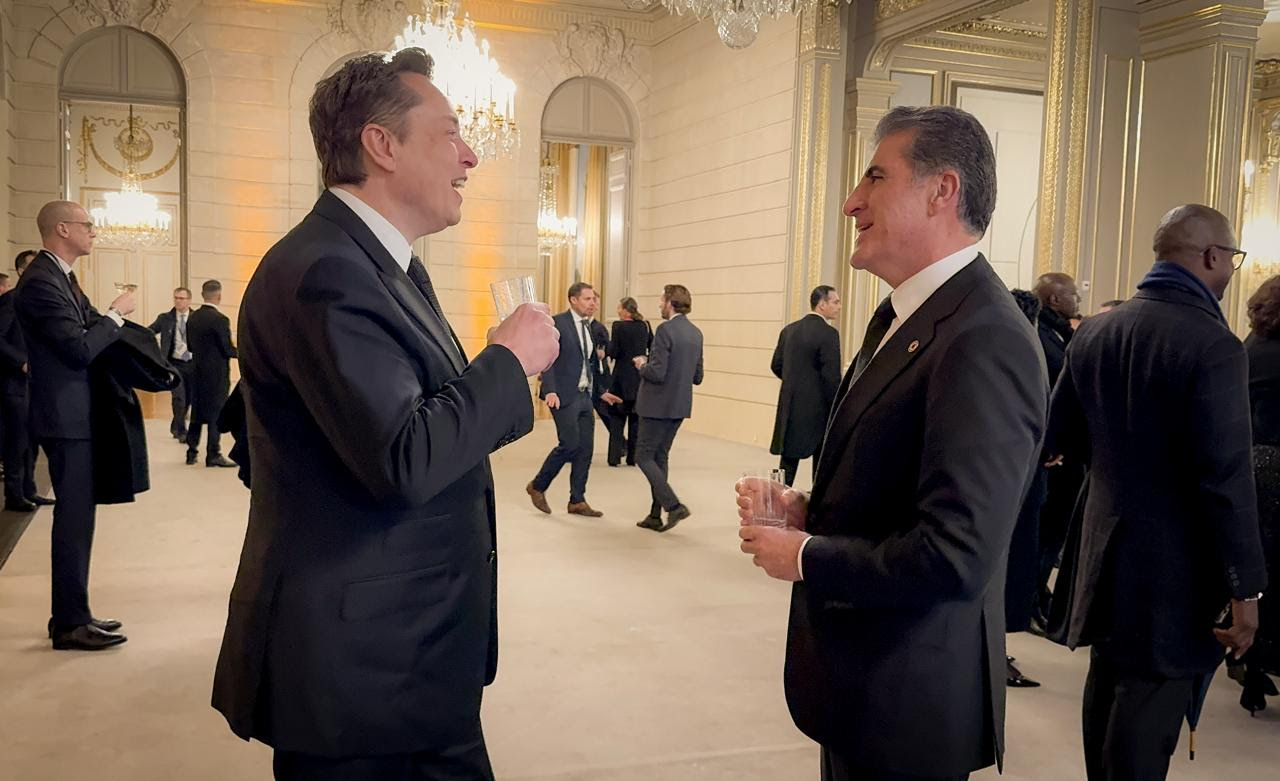










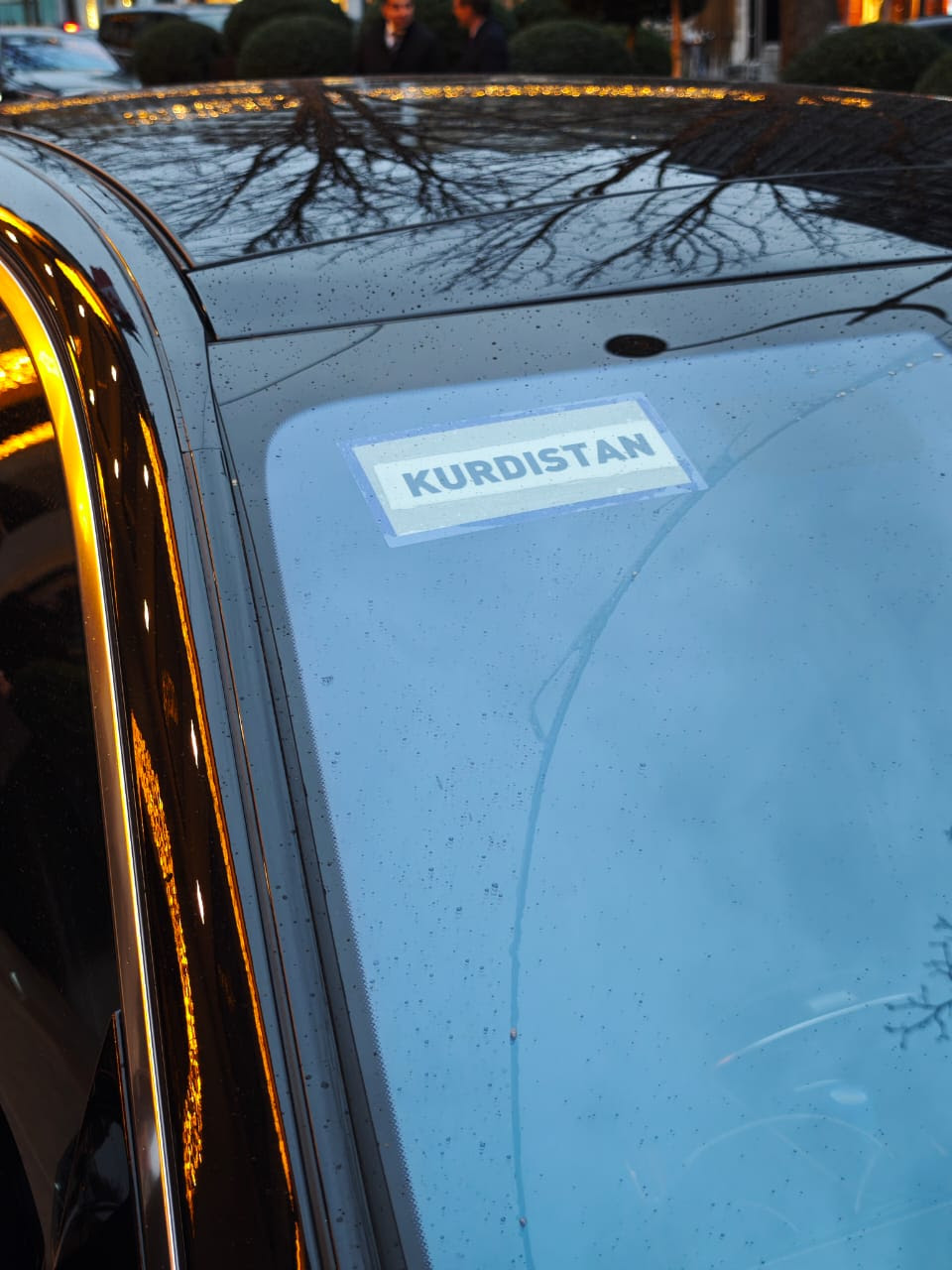



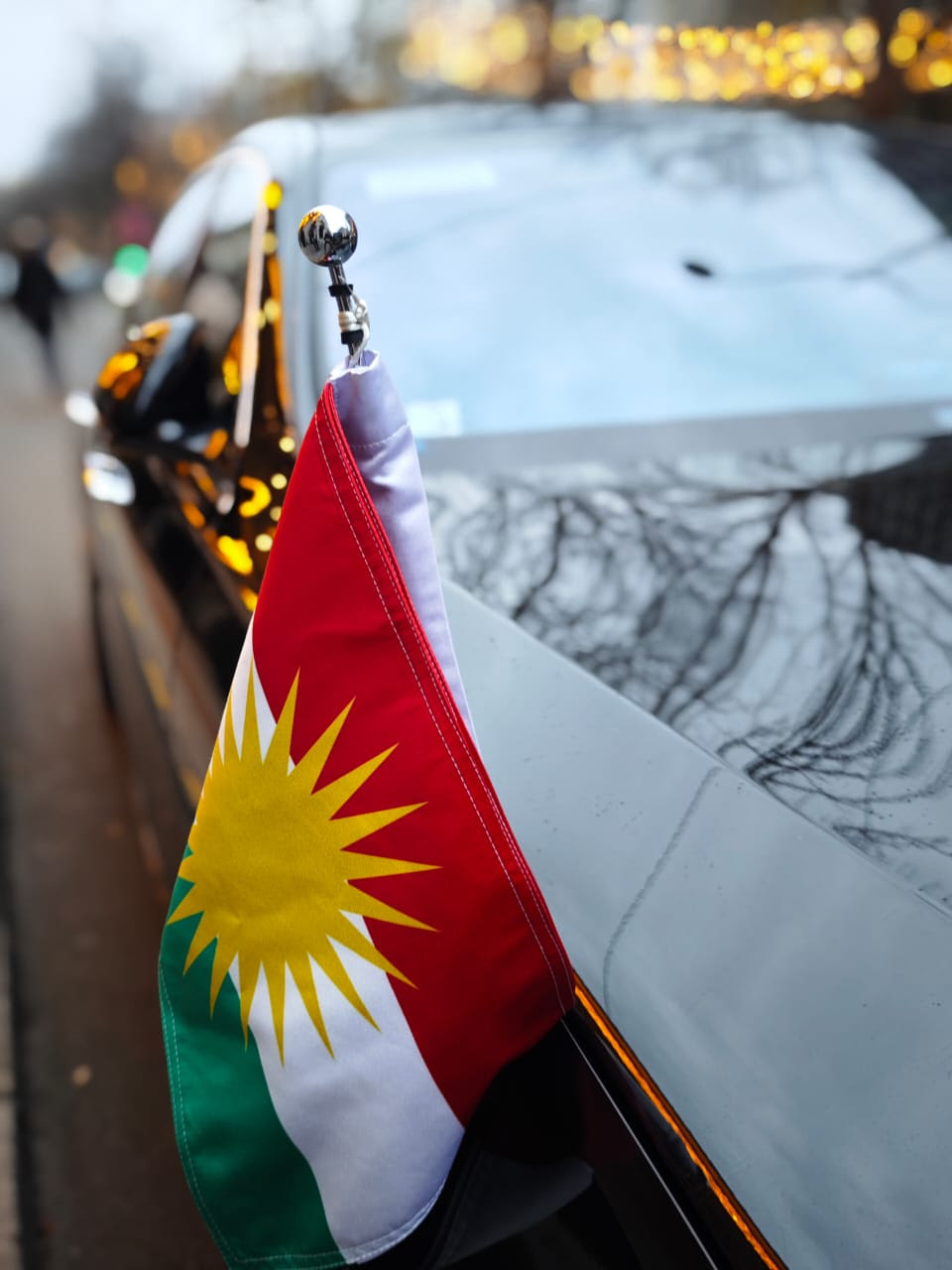



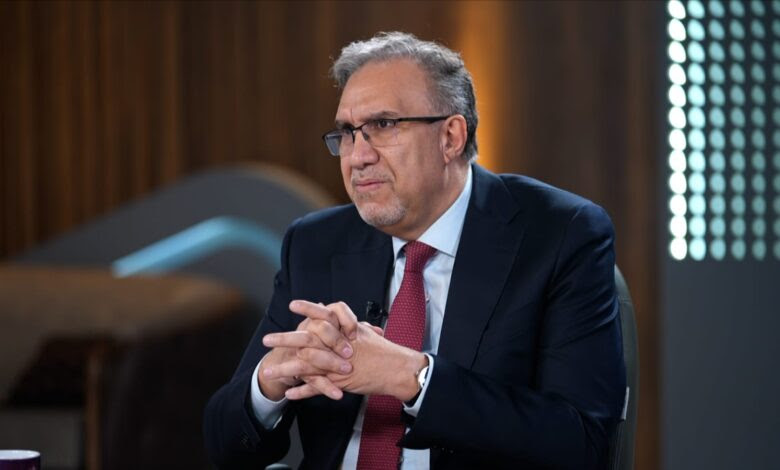






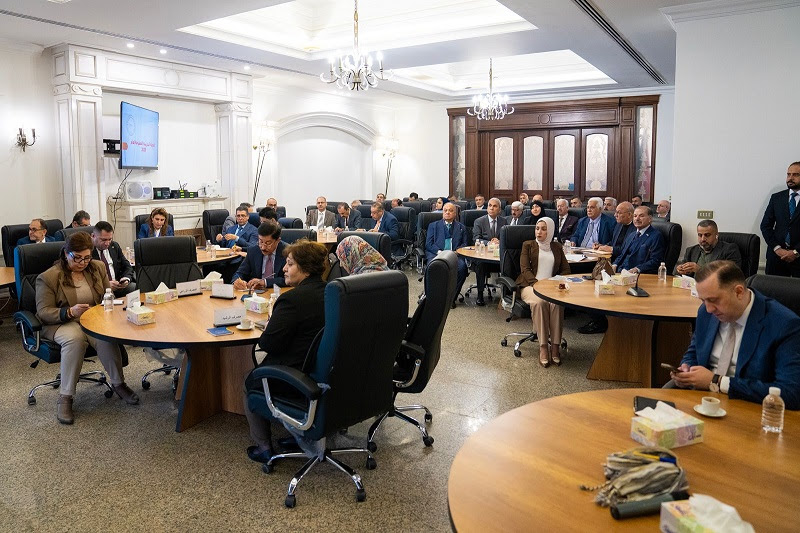
No comments:
Post a Comment